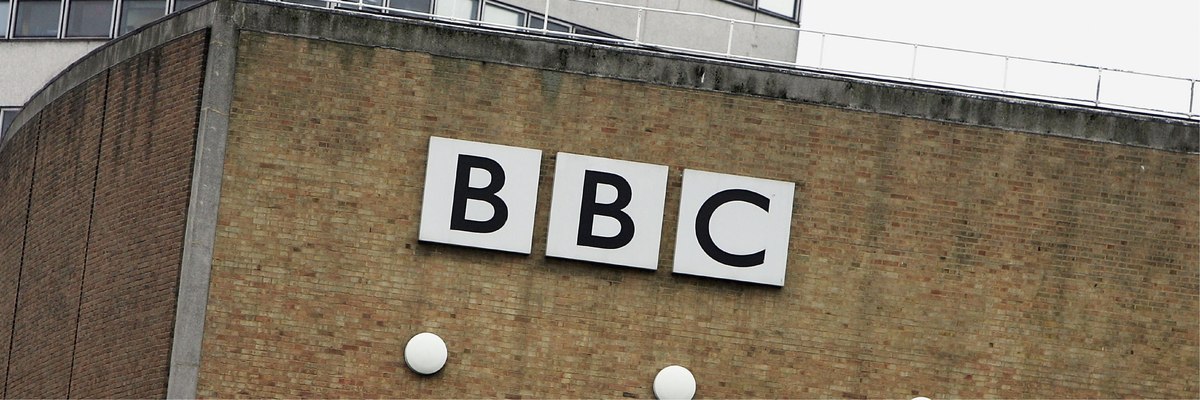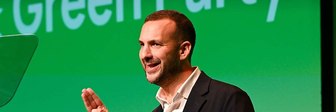These are difficult days for the BBC. It’s hardly the first time that sentence has been written but it’s probably true to say the Corporation has never come under quite so much fire from so many different quarters for so many different reasons. Added to which, it now has a new director general and is about to have a new chairman as well: a chairman who is likely to be a man sworn to abolishing the licence fee. Should we be worried?
No official announcement has yet been made, but there is scarcely a soul in the media world with any doubt as to who the next chairman of the BBC is going to be. Step forward Charles Moore or, to give him his relatively new title, Baron Moore of Etchingham.
Normally BBC chairmen come and go without raising much of a stir. Indeed, most people have little idea who the chairman is or what exactly he’s meant to do (it’s always been a “he”) or why it matters. But this time it is different.
That’s partly because of the way the story was leaked. Most insiders blame Dominic Cummings, widely regarded as the prince of darkness in Number Ten and even seen by some as the man who gives Boris Johnson his instructions. The story was that Moore had already been sounded out by Johnson and said yes please.
It could scarcely have been more incendiary. It divided the broadcasting world and, indeed, the world of politics, right down the middle. No-one doubts that Moore is a very clever man with decades of experience of how the worlds of politics and media work. He has been the editor of The Daily Telegraph, The Spectator and The Sunday Telegraph. He still writes for all three. He is also the man chosen by Margaret Thatcher to write her biography and it’s widely accepted that he made a brilliant job of it
But he is also known for something else. Something that his supporters say make him superbly qualified for the job of BBC chairman and his detractors say should disqualify him instantly. He does not believe the BBC should be funded by a licence fee.
So passionate is that belief that he once refused to pay for a licence because the BBC had failed to fire Jonathan Ross and Russell Brand after the way they had treated the actor Andrew Sachs live on air. That alone was enough for the Tory MP who chairs the parliamentary culture committee, Julian Knight, to say it would be “beyond the pale” for him to be made chairman. He added for good measure: “It’s almost like being convicted of fraud and being in a bank.”
Mr Knight is not alone in that view and it’s certainly the case that the BBC is entirely dependent on the licence fee. Roughly 70% of its revenue depends on it. But Lord Moore is not alone in thinking the fee is both iniquitous and unnecessary.
Those who oppose it make the obvious point that things have changed since the BBC was founded nearly a century ago. In those halcyon days (halcyon for the BBC at least) there was no alternative to what was then the British Broadcasting Company. Now there are more competitors than you can shake a stick at and the biggest of them are stealing viewers and listeners at a frightening rate of knots.
The BBC’s dominance of great drama productions has vanished under the onslaught from the vastly richer Netflix and Amazon. The great sporting events have been stolen by the likes of BT and Sky.
BBC News still attracts more viewers and listeners than any other news source, but even that is losing young listeners and viewers. They get their news from their smart phones.
The BBC is already smarting under the lash of a hostile Number Ten. Some sources close to Boris Johnson want it to cut its costs by selling off most of its radio stations. And that’s just the start. The real hawks will not be happy until it is left with just two main TV channels, Radio Four and a much slimmed-down website. And it would all have to be funded, one way or another, by subscription.
Some steps in the direction have already been taken.
The joy of the licence fee from the viewpoint of the BBC is that it is a criminal offence not to pay it. Number Ten wants to scrap that. The effect on the BBC’s finances would be disastrous. And several ministers want to abolish it altogether when it comes up for renewal in seven years from now.
But the BBC is not without its friends. They regard it as the greatest public service broadcaster in the world. BBC news is still easily the most trusted source of information in the nation and they say our democracy would be much the poorer without it.
Even the BBC’s greatest friends (I plead guilty to the charge) acknowledge that it has sometimes been its own worst enemy. Some of them claim it has too often failed to discharge its sacred duty to be politically impartial and has been, for too long, dominated by the liberal left. But many believe that will be corrected by the new director general Tim Davie.
Mr Davie has also made it clear that he will not allow his star presenters to peddle their own views on social media platforms as they have been doing for so long.
He may well win those battles, but the licence fee is another matter. He’s already on record as being opposed to a subscription model. How he will handle a chairman who supports it and a hostile government to boot is something we can only guess at.
Even the most boosterish of the BBC’s supporters acknowledge that it is at a crossroads. A few years ago they would have argued that it would be impossible to envisage the United Kingdom without the great unifying force of the most powerful cultural institution in the land. That argument is increasingly difficult to sustain.
What’s your view? Do you think the BBC is doing a good job and are you happy to continue paying the licence fee? Or is it time for it to throw in the towel and try to take on the commercial operators on their own battleground. Or can you see another model which might enable a slimmed-down version of the BBC to survive as a public service broadcaster?
Let us know your views






